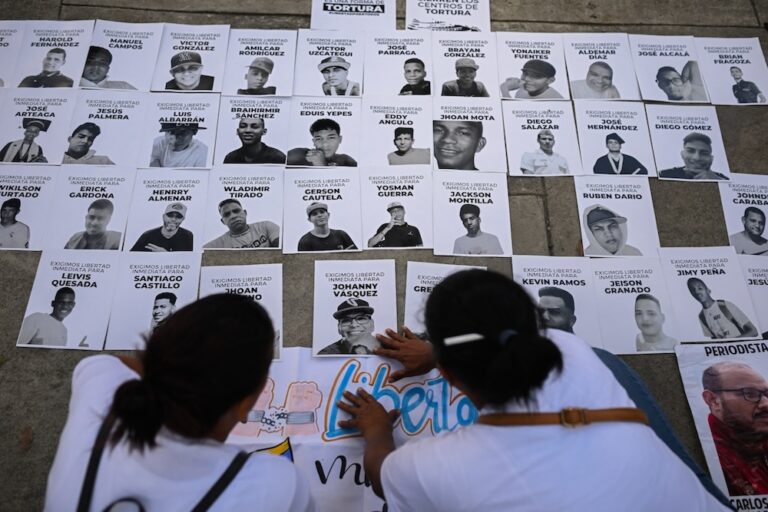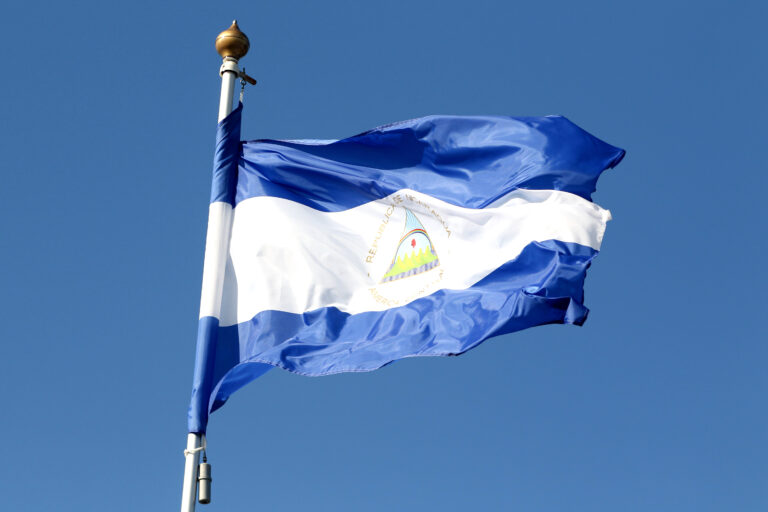IFEX Americas Regional Editor Laura Vidal looks into what lies ahead for Argentina following the election of Javier Milei.
Javier Milei’s presidency in Argentina marks a pivotal moment for the country, bringing potential challenges to freedom of expression and the free use of civic space. The coming years under Milei’s leadership may see significant policy changes and reversals and the curtailment of rights, especially for women. Civil society still has strong cards to play to protect Argentina’s hard-won democracy.
A vote for change, a vote for turbulence
In a quest for radical change, Argentina has voted itself into further uncertainty. Javier Milei’s election triumph came amidst hyperinflation and widespread disappointment, particularly among younger generations disillusioned by traditional political figures. However, those committed to protecting fundamental rights are bracing for a struggle. Milei’s promises and rhetoric do not suggest an easy period ahead.
His minimisation of human rights abuses during Argentina’s dictatorship and his intention to reverse the decriminalisation of abortion – a significant achievement for women’s rights and an inspiration for the rest of the region – signal challenging times. Notably, among the closing of other significant organisms, Milei said his administration would dismantle the Human Rights Secretariat, which would be an unprecedented move since the return of democracy to Argentina.
Technologies for repression – civil society and local government push back
Milei’s administration has wasted no time signalling a potential crackdown on civic space, using advanced technologies for protester identification. Argentina has been a pioneer in implementing biometric identification policies, which have increasingly incorporated sophisticated technological elements. Local media reports the existence of at least three automated facial recognition systems in the country, with applications ranging from stadiums to public transportation terminals. Argentine civil society has actively warned of these technologies’ risks, resulting in legal challenges and campaigns like Con mi cara no (“Not with my face”).
In his first presidential speech, Milei’s words, “El que corta, no cobra,” – a threat to cut any financial aid to those blocking streets during protests – conveyed a hardline approach to demonstrations. According to Security Minister Patricia Bullrich, in regards to the protests announced for December:
“We will identify people. We will have cameras, we will have drones, and we will have various ways of identifying them.”
The Center for Legal and Social Studies (CELS) denounced the anti-protest set of rules and actions to the United Nations and the Inter-American Commission on Human Rights (IACHR). The denunciation was supported by 1,700 signatures from trade unions, human rights organisations, environmental groups, indigenous peoples groups and migrants, as well as transfeminist, religious, childhood, student, and political collectives.
Following a massive demonstration on 20 December 2023, the pre-transition government was asked to provide information collected by the cameras. It refused, explaining that the system is neither technically nor judicially equipped for use, and that such a request was a criminalisation of protest.
The struggle is far from over. CELS has reiterated its call to the IACHR after labour, social, and political organisations received, on 10 and 11 January, legal notices from the government demanding hefty sums of money for their involvement in public protests.
A worrying scenario ahead for freedom of the press and the feminist movement
One thing Milei can’t be accused of is inconsistency. His actions continue a pattern observed over past years. Since his time as an economic commentator, Milei’s contempt for journalism has been front and centre. His antagonistic attitude, characterised by verbal assaults and threats of legal action, has sparked global alarms. His plan to dismantle public media points to a disconcerting disregard for press freedom. Organisations like Reporters Without Borders (RSF) have taken note.
His tenure as an economic commentator on television and radio since 2018 was marked by a series of comments aimed at journalists, labelling them as “ignorant,” “imbeciles,” and “donkeys”. The situation escalated before his election as a deputy in 2021 and later, when he took legal action against five journalists while in office. Already known for his incendiary comments, he crossed a line by threatening journalists with physical violence, and even pushing them, during television appearances. As expected, new instances of his stigmatising discourse have been registered since he assumed the presidency – calling a journalist a “liar” and accusing her of organising a plot against him.
“The question is how to continue reporting while we tremble with fear.”
Milei’s followers, taking cues from his rhetoric, have increased the harassment of journalists, especially women. It has reached a point where some have had to resort to keeping a lower profile, or protect their safety by leaving the country. This was the case with journalist Luciana Peker, who left Argentina after receiving violent threats: “We are facing a witch-hunt from the ultra-right,” she told The Guardian.
Camila Parodi, a feminist journalist and cultural anthropologist, told Latin America Journalism that freedom of expression was especially problematic for journalists covering or working from social and geographic peripheries, and that those working for feminist, popular or independent outlets are being persecuted and attacked.
Their work in the period to come is expected to become even more difficult.
Claudia Piñeiro and Giselle Leclercq, who have covered the women’s movement and the libertarian movement, respectively, have seen online intense harassment and doxxing (the sharing of private or identifying information on the internet with malicious intent) .
According to Leclercq, Milei’s message has resounded among a portion of the population that is “very angry with the advance of gender rights, angry with feminism, and schoolboys bitter that their female classmates were suddenly empowered and stood up to them.” Given the backlash, Claudia Acuña, founder of Periodistas Argentinas, says “the question is how to continue reporting while we tremble with fear.”
Promises to erode women’s rights
Three years after Argentina took the historic step of being among the first major Latin American countries to decriminalise abortion, women’s rights activists now brace themselves for renewed battles. The Argentine feminist movement is deeply concerned about Milei’s opposition to abortion, mandatory sexual education in schools, and free medical coverage for gender reassignment treatments, among other issues.
Further intensifying these concerns are Milei’s stark characterisation of abortion as “murder” and the promise he made during his campaign to call for a referendum to repeal the abortion law if he became president. He has also described pro-abortion rights advocates as “brainwashed by a murderous policy.”
Argentinians who propelled Milei to electoral success expect dramatic economic changes. If his government fails to deliver, they could find themselves confronting a familiar economic landscape. However, this time, it comes accompanied by an additional cost — the potential sacrifice of fundamental rights and the weakening of their democracy.
In this political climate, the role of civil society and local governments in Argentina is crucial. They have consistently worked to counter policies that threaten progress. The demonstrations that took place in December, as well as the initiatives of many groups against abusive uses of technology are a testament to their engagement and effectiveness. They have influenced positive policy changes in the past, and are ready to stand firm against attempts to reverse these advancements.
Region in brief
The dramatic escalation of violence in Ecuador peaked on 9 January with a criminal groups’ seizure of TC television station in Guayaquil. This attack, part of a series of assaults around the country, prompted the Ecuadorian state to declare a state of internal armed conflict. The channel was off-air for 24 hours following the attack, highlighting the precarious situation of press freedom in the region. Days later, in a local radio station, a journalist was forced to read a statement from a criminal group aimed at the populations of Tulcán and the Carchi province, both close to Colombia’s border.
Why are journalists killed in Mexico? IFEX member ARTICLE 19 Mexico and Central America has released Veracruz de los Silencios, a study examining the violence against journalists in Veracruz between 2010 and 2016, a period in which at least 17 journalists were killed and three went missing. The study highlights the roles of drug cartels and government officials, and also points to media companies as a detrimental force. It reveals a landscape of fear, ineffective investigations, and the increasing power of the perpetrators.



